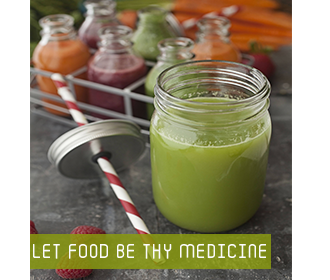Sprouts are full of great nutrients, and are easy to grow on your own! Once a seed, pulse, or grain has sprouted, the nutritional value of the sprout raises dramatically. Sprouts are easily digested in the body because they contain live enzymes, and they can often act as detoxifiers and blood purifiers. Many sprouts, like alfalfa, contain antioxidants, which protect the body against free radical damage. Sprouts also contain a concentrated amount of phytochemicals. Phytochemicals are compounds produced by plants (found in fruits, vegetables, legumes, and grains) that have a protective effect on the body. Sprouting also ensures that you have fresh, live, wholesome food on hand, all of which is very important when it comes to having a healthy diet. So if you are looking to add beneficial vitamins, minerals, enzymes, and phytochemicals to your diet, give sprouting a try!
Sprouting can be fun for the whole family and in an inexpensive way to grow fresh food at home! How great is it to watch sprouts shoot up before your very eyes! And sprouts taste wonderful in wraps, sandwiches, and salads! So start sprouting!
What you will need:
- A jar, some cheesecloth or mesh, and a rubber band
- Or, you can purchase a sprouting kit, like one of these Vogel BioSnacky Sprouting Kits. There are jar kits, or kits with many levels allowing you to grow many different types of sprouts at one time
- Seeds, pulses, or grains to sprout. Try Mumm’s Sprouting Mixes, or Vogel BioSnacky Mixes
How to Sprout:
- Place 1-4 tbsp of seeds, pulses, or grains in your jar and cover with cheesecloth or mesh. This will allow air to circulate and the water you rinse the sprouts with to drain out. Attach the cheesecloth to the jar using the rubber band.
- Add enough fresh cool water to cover the seeds, swirl, and drain. Then add 1 cup of cool fresh water and soak the seeds for 4-8 hours. Drain water after soaking.
- You need to regularly rinse the sprouts with clean fresh water to prevent mould. Add water, swirl, and drain. Most sprouts need to be rinsed twice a day.
- Place the jar in an invert position that allows the water to drain from the jar. Prop it up against a sink or bowl. If you purchase one of the Vogel BioSnacky Sprouting Kits, they have a ledge on the lid to keep the jar in a draining position!
- Avoid putting sprouts in direct sunlight.
- Only sprout whole grains, seeds, and beans, as split ones will not grow
- Purchase organic sprouting mixes to get started!
- Be careful that you don’t overcrowd the jar-sprouts need room!
- When harvesting, gently pull those that are ready from the rest.
There are many different types of sprouts that you can grow. It is important to note that the different types of grains, seeds, and beans all require rinsing at different stages. For example, garbanzo, or chickpeas, need to be rinsed up to four times a day, while other sprouts, like alfalfa, only need to be rinsed twice a day. You also need to know how long the seed you are sprouting will take to germinate: some may take two days, while others may take up to four days. When starting out, it may be easiest to purchase a sprouting mix.
Like other raw and freshly grown food, sprouts could contain harmful bacteria. Purchase organic seeds and sprouting mixes from a reputable source, like Mumm’s. Mumm’s samples each lot of seeds that comes through the warehouse to ensure they are safe for consumption. Make sure you refrigerate the sprouts once they have grown, and wash them thoroughly before use.
Use sprouts in salads, sandwiches, wraps, dips, and dressings. Add them to soups, casseroles, vegetable and meat dishes. So give sprouting a try and let us know what you think!











